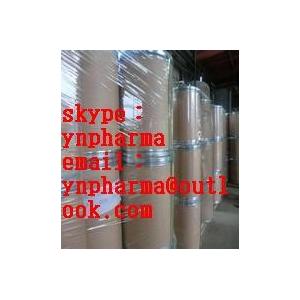Genistein
4’,5,7-trihydroxy-isoflavon;5,7-dihydroxy-3-(4-hydroxyphenyl)-4h-1-benzopyran-4-on;c.i.75610;differenola;genistein(synthetic);genisteol;genisterin;prunetol
CAS #:
Molecular formula:
Molucular weight:
Formulation:
Purity:
446-72-0
C15H10O5
270.2
A crystalline solid
95%, 98%
Genistein is an isoflavonoid phytoestrogenic compound found in soybeans, pea pods, and other legumes. The estimated human normal dietary intake of genistein, primarily as glycosides, is 0 to 0.5 mg/kg. Genistein is present in much greater amounts in nutritional supplements. Genistein is carcinogenic in female neonatal mice, inducing endocrine-dependent uterine tumors in a fashion similar to diethylstilbestrol (DES). Genistein is a tyrosine-specific inhibitor of protein kinase activity, blocking the tyrosine-phosphorylation of histone H2B. In adult animals, dietary genistein has chemopreventive effects on breast, prostate, and other endocrine-dependent tumors.
C15H10O5
270.2
A crystalline solid
95%, 98%
Genistein is an isoflavonoid phytoestrogenic compound found in soybeans, pea pods, and other legumes. The estimated human normal dietary intake of genistein, primarily as glycosides, is 0 to 0.5 mg/kg. Genistein is present in much greater amounts in nutritional supplements. Genistein is carcinogenic in female neonatal mice, inducing endocrine-dependent uterine tumors in a fashion similar to diethylstilbestrol (DES). Genistein is a tyrosine-specific inhibitor of protein kinase activity, blocking the tyrosine-phosphorylation of histone H2B. In adult animals, dietary genistein has chemopreventive effects on breast, prostate, and other endocrine-dependent tumors.
